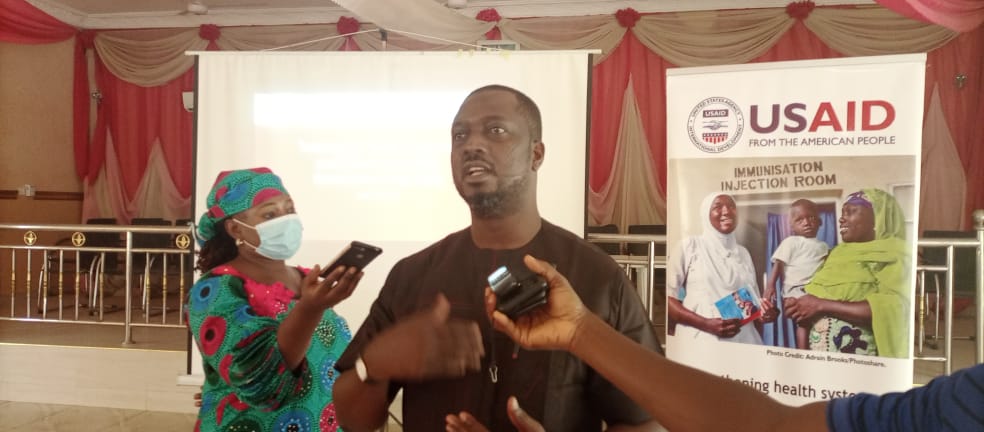Segun Babatunde in Bauchi
Apparently committed towards enhancing effective primary Healthcare delivery services across the state, the Bauchi State Government has paid the sum of N320m as counterpart funding in the state.
The State Director of USAID funded Integrated Health Program (IHP), Dr Alhassan Siaka who disclosed this while facilitating Media engagement in Healthcare delivery workshop held at the Chartwell Hotel in Misau Monday said that with such commitment by the state government, the objective of the project will be achieved.
Siaka explained that development partners including USAID, UNICEF, CIDA, Dangote Foundation, Bill and Melinda Foundation and others have pulled together the sum of N5b which will serve as technical support for the implementation of the program for 2021/2021 period.
The IHP State Director who commended the Bauchi State governmentfor its commitment and efforts twards making quality healthcare services available to the citizens said “this can be seen in the prompt payment of the 2021 counterpart funding of N330 million in the primary healthcare basket fund. This is clear demonstration of government’s commitment”.
He explained that the aim is to ensure that the primary Healthcare delivery service was improved to minimize negative impact at that level of service delivery stressing that if the primary Healthcare coverage is strengthened, the secondary and tertiary will have less issues to handle.
While identifying the media as a veritable tool in shaping beliefs,attitude and perceived norms mitigating access to primary Healthcare delivery services in communities in Bauchi Stat, he said the primary objective of the USAID IHP intervention in Bauchi State was to strengthen the health systems and to Improve on quality of integrated primary health care services that would be all encompassing in the areas of reproductive, maternal, newborn and child health plus nutrition and malaria (RMNCH+NM).
On the issue of records keeping at the Primary Healthcare level, he said that 23,000 health management information tools have been made available to all the 323 PHCs across the state because according to him, without accurate data, it will be difficult to manage issues of improving healthcare service delivery.
He further said that, maternal mortality and neonatal morbidity can be effectively managed when there is accuracy in records keeping assuring that personnel are being trained in order to ensure that data was accurately kept and made available.
Alhassan Siaka also said that early referrals from the PHCs to the next stage of health service is very important in order to reduce risks of the complication pointing out the as it is now, more deaths are recorded at the secondary level due to delays in referrals particularly from hard to reach (HTR) facilities.
He then called on the media to advocate for improved government commitment and policy change as part of efforts in strengthening health system as well access and improve quality of integrated primary health care.
In his opening remarks at the training, the IHP director said that the attention of the public needs to be drawn to those who take decisions in order to address challenges in the health sector.
He further said that there is the need to refocus energy on areas of governance and leadership of the health sector, adding IHP supports six pillars of health systems which includes leadership and governance.
Alhassan Siaka said that, “In IHP, what we are concerned about is how do we ensure that the health sector benefit from vibrant leadership? How do we ensure that the governance structure around health is improved in such a way that is productive, efficient and targeted at delivery results that is mostly beneficial to the poorest of the poor”
He added that, “There is what the media can do to ensure that information around leadership, governance and health sector in general is made available to the public as well as the decision making population, so that reliable information forms the basis for decision that made by the authorities concerned”
END


